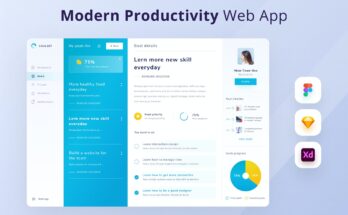Mobile apps hold a lot of potential for small business owners; however, they fail to understand this reality in the modern era. They are indispensable for small and local business owners. If you are the owner of a small to medium scale business and in charge of its marketing, you should consider whether your company needs a mobile app or not.
If you check the App Store and Google Play, you will find there are approximately 1.4 million mobile apps in the market today. The first thought that might cross your mind is, why bother? The market is already saturated, and entering it will obviously do no good to your business.
Unfortunately, you are wrong!
Why do you need a mobile app for your business?
You might have invested your resources and time in creating a stunning mobile site and feel that it covers all your customers when they look for information about your business. At the outset, it does seem fine; however, ask yourself the following four questions before you consider investing in a mobile app for your company-
- How often do you find a customer taking a picture of your company’s product and site to share them on their social media pages?
- Does your business website alert you when a valuable customer walks in through the door?
- Is your business site able to offer special discounts and perks to customers that have a big influence socially in the market?
- Can your website customize the experience of shopping for regular customers or visitors?
The above is just some of the prime instances where it becomes inherent that mobile apps are valuable, and they score over mobile websites any day. Moreover, with in-built app capabilities like cameras, sensors, biometrics, and geolocation, the opportunities are virtually countless for small business owners. If you are still considering whether you need a mobile app or not for your business, consider the importance of the smartphone in the modern era.
The smartphone reigns in the modern era
If you manage a business today, you know the mobile phone holds the center-stage of all action today. If you consider the facts, you will find that since 2008, the average user of smartphones used to spend just some minutes in a day on his/her device. Today, the average user spends at least 3 hours every day, consuming mobile content. Since 2014, the use of mobiles outnumbered the use of desktops, and this trend is increasing every year.
Most importantly, there are 90% of users spend these 3 hours a day interacting with mobile apps on their devices. If you compare this to mobile site usage, the figure is just over 10% – see the difference!
Therefore, if you have high hopes with your mobile website to grab the attention of your targeted customers, you might want to give it a second thought!
In November 2013, Google issued the results of research that mapped the purchase path for buying on nine verticals that covered travel, home, and garden, fashion, health, restaurants, and automotive. The results of this research were very surprising. 48% of mobile users started their journey with mobile searches over desktop searches, bringing its percentage to a really low percentage. Experts in the field of marketing say that small business owners need to create a marketing strategy for mobile apps and connect with the targeted audience in the market with them.
Almost three in ten consumers started their journey purchasing on an esteemed and branded mobile app. These consumers displayed their preference for researching products where branded mobile apps existed. This was a very promising discovery for those businesses that were planning to launch a mobile app. The location marketing company xAD discovered that –
- Approximately 42% of users of smartphones that browse products on the purchase journey intend to make the purchase in an hour.
- 69% of these on-the-go users generally convert in the store.
The above figures have consistently risen since 2013.
Esteemed company in Salesforce solutions, Flosum states that the prime takeaways for small business mobile marketers are-
- Consumers rely on their smartphones and mobile devices when they start the purchase journey.
- Consumers want accurate information on demand, and proximity to this data brings them closer to conversions. For instance, services with geolocation help businesses to assess and meet their customer demands.
- Mobile marketing is the key to capitalizing on impulse buying by offering consumers a highly customized experience.
| Small business owners often have a question- do they need a mobile app when they already have a mobile website? This question is an obvious one as small business owners often have limited resources and budgets. Both of them work hand in hand, and they cannot replace each other. Given below is a table that reveals the advantages and the functionality of mobile apps and mobile websites- |
Mobile sites versus mobile apps
| Mobile site | Mobile app | |
| Objective for marketing | Attract new customers | Create loyal customers |
| Mechanism or usage | The browser needs to be opened, and the URL clicked. | An icon needs to be tapped on the screen of the smartphone. |
| User interactions | Customer visits finish the action and leaves. | Open interaction that is two-way push notification triggers continuous interaction. |
| Marketing benefit | In most cases, it is most responsive to search engine queries. | The mobile app stays or rather lives on the user’s phone.The rates of engagement, loyalty, and simplicity of use are more. |
Small business owners that restrict their mobile presence to a responsive site only risk the customer’s goodbye scenario. The customer locates you on the mobile search and even shops or buys and leaves forever in most cases. They generally forget and hardly come back for a repeated shopping experience. However, businesses that focus their marketing through a mobile app might miss the opportunity of locating new customers completely.
Successful businesses deploy their mobile sites to attract potential customers and persuade them to download their mobile apps. This generates a consistent opportunity for lucrative and ongoing customer relationships for creating engagement, build loyalty, and expand their social reach. In this manner, they effectively are able to deliver intense personalized customer shopping experiences with a human touch!



